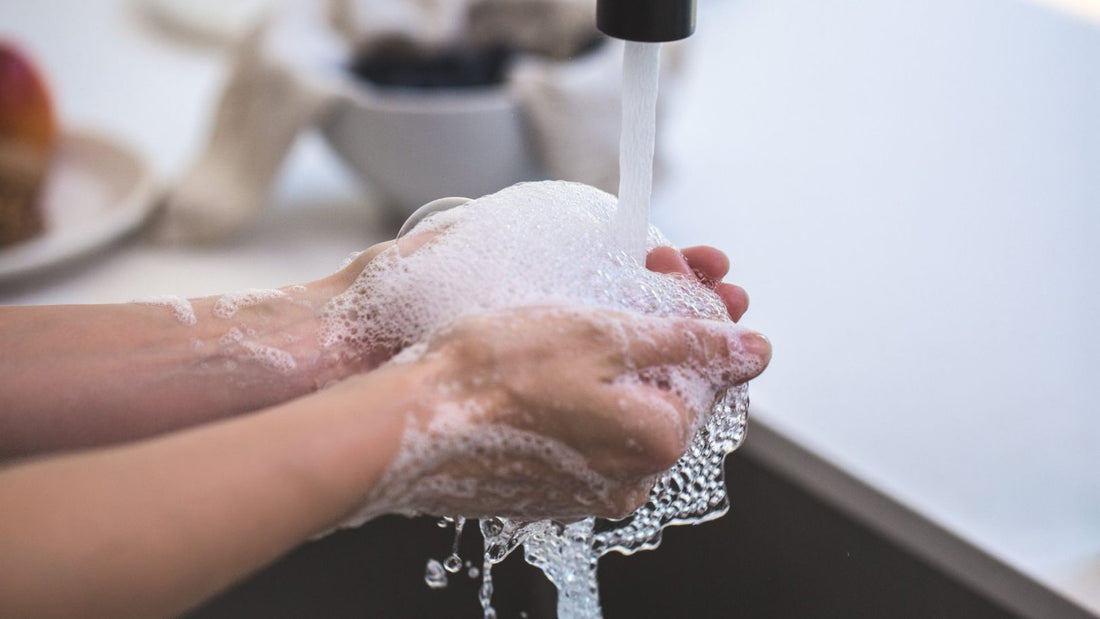Contents:
Whether we use the dishwasher or the traditional sink, we have to do laundry every day. In both cases, it makes sense to consider ecological and economic aspects. Protecting the natural environment should become a way of life for us and also apply to cleaning, including dishwashing.
Environmentally friendly way to wash dishes by hand
Although this use of the dishwasher is considered the most environmentally friendly and economical, not everyone has these appliances at home for various reasons. However, there are ways to make conventional sink washing more environmentally friendly:
- For heavy, greasy dirt, hot water with baking soda is best. If you're looking for a pleasant aroma, you can add a few drops of your favorite essential oil (e.g., lemon or tea tree oil).
- To wash non-greasy dishes, such as teacups, mugs, and glasses, simply soak them in water with salt. Salt not only makes them cleaner but also shinier.
- When washing dishes, you can pour half a glass of vinegar into the chamber with clean water. Then wash the dishes. Let them dry or wipe them. Vinegar makes them shine beautifully.
- We can make a homemade dishwashing detergent. Simply mix baking soda, soap flakes, a few drops of vinegar, and a few drops of essential oil, and pour the finished liquid into a glass bottle.
Eco-friendly dishwashing is also about using as little water as possible, while ensuring that the dishes are washed thoroughly and correctly. The best way to do this is to fill the sink with warm water, place the dirty dishes in it, and let them soak. The least ecological method is washing dishes under running water. The order of washing is also important: We start by washing glasses, tumblers, and cups, then knives, forks, and spoons should be placed in a row, followed by plates and pots, and only lastly, the greasiest pans. Also, remember to remove as much food residue as possible from dirty dishes before washing.
What we use for washing dishes is also important. Sponges available in drugstores are mostly made of environmentally harmful plastic, so it's better to opt for eco-friendly sponges made of cotton, linen, tetra, bamboo, or hemp fibers. A sponge made from pumpkin sprouts also works excellently.
Ecological dishwasher
Set the eco program. It will then use minimal amounts of water and electricity. However, the cleaning products we use are not without significance. Products available in drugstores contain many environmentally harmful chemicals, as well as fine microplastics that permanently seep into the groundwater. To prevent this, we can prepare homemade, eco-friendly dishwasher cubes. You can replace the store-bought rinse aid with vinegar.
To prepare ecological cubes for the dishwasher you will need:
- Soda - 1 cup
- Borax - 1 cup
- Salt - 0.5 cups
- Lemon juice - at least 0.5 cups
- Ice molds
The ingredients should be combined and thoroughly mixed, then poured into ice cube trays. Once the mixture has solidified (after about a day), the cubes are ready to use.
Homemade dishwashing detergents or dishwasher cubes are eco-friendly for another reason. By avoiding commercially available ready-made products, we also reduce the amount of plastic waste—plastic bottles and bags, or the film in which each individual dishwasher cube is usually packaged.
THE PUBLISHER'S CHOICE
Dried dates 1 kg BIOGO
- €4,21
€4,95- €4,21
- Unit price
- / per
Almonds 1 kg BIOGO
- €11,69
€13,75- €11,69
- Unit price
- / per
Peeled sunflower seeds 1 kg BIOGO
- €3,04
€3,57- €3,04
- Unit price
- / per
Dried organic mango 400 g BIOGO
- €10,99
- €10,99
- Unit price
- / per
Dried White Mulberries 500 g ORGANIC
- €5,84
€6,87- €5,84
- Unit price
- / per
Popcorn (corn kernels) organic 1 kg BIOGO
- €5,84
- €5,84
- Unit price
- / per
Organic Ground Turmeric 500 g BIOGO
- €5,92
- €5,92
- Unit price
- / per
Organic cashew nuts 1 kg BIOGO
- €19,99
- €19,99
- Unit price
- / per
Milk thistle seeds 1 kg BIOGO
- €3,99
- €3,99
- Unit price
- / per
Unpeeled buckwheat groats 1 kg BIOGO
- €2,81
€3,31- €2,81
- Unit price
- / per







































































































































